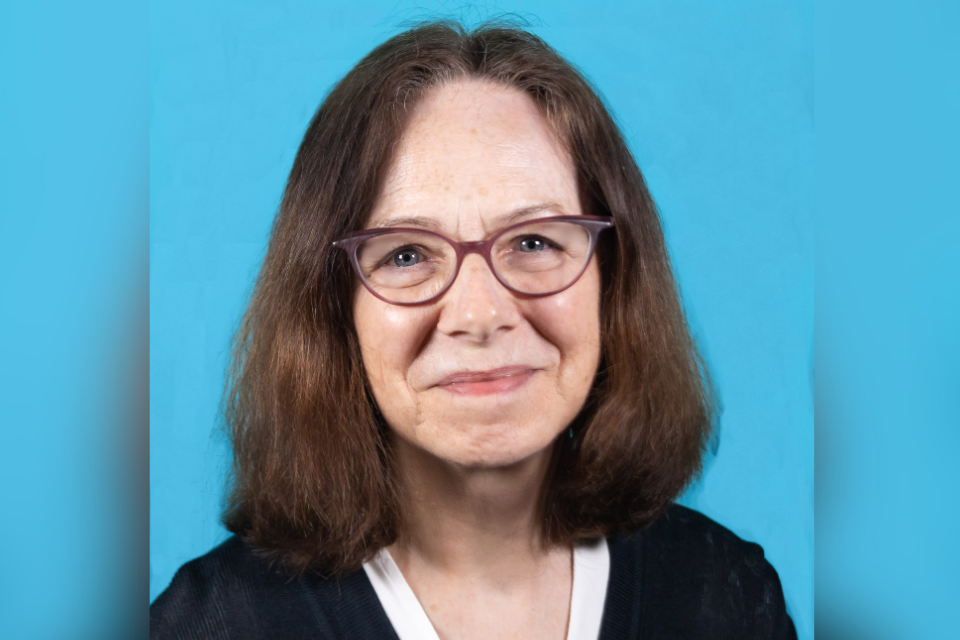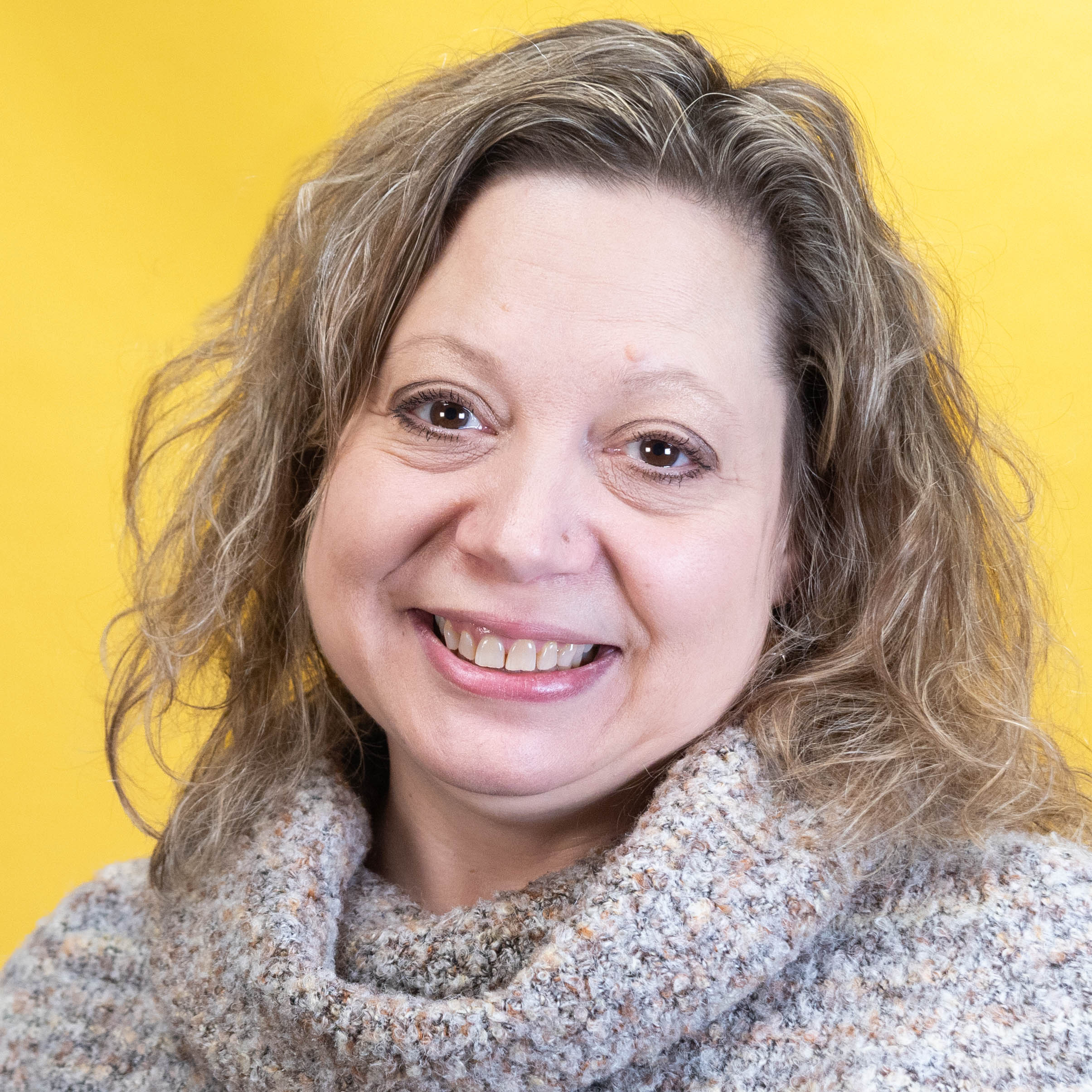
By Vania Arthur
Marked by her contagious joy, quick wit, and compassionate heart, Roberta Hatcher has been a change-maker and pioneer during her tenure as the Training Coordinator at Literacy Pittsburgh. On June 30, Roberta will retire from Literacy Pittsburgh. Moving into the Training Coordinator role will be Jeff Rice, who joined our staff in 2024 as an English Language Learning Instructor.
Before we bid her goodbye, we celebrate Roberta for all the work she’s done at Literacy Pittsburgh and all that she has yet to achieve and discover in this new chapter of her life.
Roberta has made a significant difference and shaped the lives of volunteers, tutors, and staff during her time at Literacy Pittsburgh. Since 2017, Roberta has trained nearly 2,000 volunteers as tutors, organized eight Tutor Conferences, revamped the volunteer training model for the organization, and developed online tutor training modules in collaboration with the Pennsylvania Department of Adult Education.
Roberta grew up in northern New Jersey and spent her adult life in the Midwest before her move to Pittsburgh. She has allowed each and every opportunity presented to her to transform her thinking and approach to the people she meets and supports.
Having taught French at the university level for over 15 years and specializing in literature and film from francophone Africa, Roberta was introduced to Literacy Pittsburgh through volunteering with the organization for two years. Her position as a volunteer inspired her to apply for a Program Coordinator opening initially. She was invited instead to apply for the Training Coordinator role by Chief Program Officer Lori Como. Roberta says that was “a good call—I instantly recognized it as a better fit for my skills.” The role showcased her passion for sharing her joy of learning with others.
To reflect on Roberta’s time here, we have asked her a few questions about her journey with Literacy Pittsburgh, her thoughts and feelings coming into it, her approach, and what she’s looking forward to in the next leg of her journey.
Q: Looking back, what moments in your career at Literacy Pittsburgh felt especially meaningful or defining?
A: Early in my first year, I was asked to join a team working with the PA Department of Adult Education to develop online tutor training modules. The modules were designed for use in programs statewide that lack a full-time tutor trainer. It felt very meaningful to be tapped as a resource for a project with such a broad impact. We then built on those modules to create our own online option for tutors to complete the training, adding video recordings of our in-person workshop. When COVID-19 hit, it made it very easy to pivot to online training, since those resources were already in place.
Q: Is there a particular training initiative or success story that you’re especially proud of?
A: A success story I’m particularly proud of is a collective one encompassing the entire Volunteer and Community Programs team and volunteers: namely, seeing students in the tutoring program make equivalent and sometimes even greater educational gains than students enrolled in classes with our professional teachers. Our tutors rock!
Q: What aspect of your work brought you the most joy?
A: Meeting the volunteer tutors was always a joy for me. People have so much to give and do so willingly; seeing their excitement to begin was an inspiration. I also taught a citizenship class for my last four years here, and getting to know those students and seeing them succeed in becoming citizens was the greatest joy. The community they created, the hospitality they demonstrated (coffee time!) will forever remain with me. Finally, although I never interacted directly with the GED students, attending the GED graduation ceremony never failed to bring tears to my eyes. As the students’ partners, children, family members testified at the open mic about the hard work that led to their loved one’s success, it made me feel humbled and honored to be part of something so meaningful, however indirectly.
Q: What is something you built or nurtured that you hope continues after your retirement?
A: Actually, I hope that the person who follows me in the role sees how much has changed and evolved in the time I was in this position and takes that as permission to shape the training according to changing needs and perspectives. My advice is to make it his own. The next training coordinator is also a teacher, so I have every confidence that he will continue to reflect on and improve the training to make it ever better.
Q: Your favorite quote listed on the website is, “Every step of the journey is the journey.” How has that guided your work or perspective in this role?
A: As an organization, we are very focused on goals: setting goals, helping learners achieve their goals, and articulating our own performance goals every year. At various times in my life, I have been very goal-focused, which has allowed me to accomplish a great deal. But at the same time, I think it’s important to be open to the process, to be attentive to how learning happens, how it changes you, what you can do this week that you couldn’t do last, how you grow in confidence, how one thing builds on another, how goals can shift and change. It’s more than the test score or final piece of paper in your hand, as important and rewarding as that may be.
Q: What lessons has this role—and the people you’ve worked with—taught you?
A: I once learned that some African statues show figures with bent knees to represent flexibility, a readiness to move in any direction. This role has taught me the importance of keeping my knees bent, as change was constant. I find lately my knees are getting a little stiff, change comes harder, so it’s time for me to move on.
Q: How do you feel your upbringing has played a role in the decisions you’ve made in your adulthood?
A: One experience in my upbringing that stuck with me was being exposed to two different methods of teaching a foreign language when I changed schools in junior high. Studying French, I had a year of four-skills approach along with grammar-translation, then switched to a program that used exclusively audio-lingual dialogue memorization in the target language, a very different approach. I couldn’t say I consciously decided then to become a language teacher, but it made me aware for the first time that learning wasn’t just a matter of good or bad teachers, but also of different teaching methods. Unfortunately, the audio-lingual approach made me a very glib speaker, but it took me years to learn to read in the foreign language.
Q: What’s one thing your colleagues might not know about your journey or your approach to training?
A: Well, there’s a lot about my wayward youth that nobody needs to know, but which has probably made me more empathetic to those taking a non-linear path through their education. Anyone who wants to know can buy me a drink, and I will bore them to tears!
Q: What are you most excited about for this next chapter of life?
A: Mostly, I’m curious to see how it unfolds. Many of the volunteers I trained were recent retirees; I would advise them to wait at least six months before taking on the commitment of tutoring. Travel, visit the grandkids, and find out who you are outside of your work life and identity. Time now to take my own advice.
Q: Any new adventures, hobbies, or relaxing routines you’re planning for retirement?
A: I’m looking forward to resuming Tai Chi lessons, which I had started several years ago but had to give up for lack of time. I also write and publish poetry and look forward to having more time to devote to that pursuit. I live half a block from a wonderful bakery and would love to just mosey down there in the morning, grab a cup of coffee, and write. Finally, I know my husband would like to leave Pittsburgh for warmer climates in the winter, but being from Minnesota, I’d rather head somewhere colder, with real winter, meaning snow instead of rain. So I have some adventurous negotiating about retired life to look forward to!
Literacy Pittsburgh (formerly Greater Pittsburgh Literacy Council) helps create better lives through learning. Recognized as a national leader in adult and family literacy, Literacy Pittsburgh is the largest provider of adult basic education in Allegheny and Beaver Counties. Last year, Literacy Pittsburgh helped more than 4,000 individuals acquire the skills needed to reach their fullest potential in life and participate productively in their communities. Literacy Pittsburgh provides free, personalized instruction in workforce readiness, high school diploma test preparation, digital literacy, English language learning, math, reading, and family literacy through one-to-one and small class instruction. Founded in 1982, it serves local adults through numerous neighborhood locations and its Downtown Pittsburgh Learning Center.


